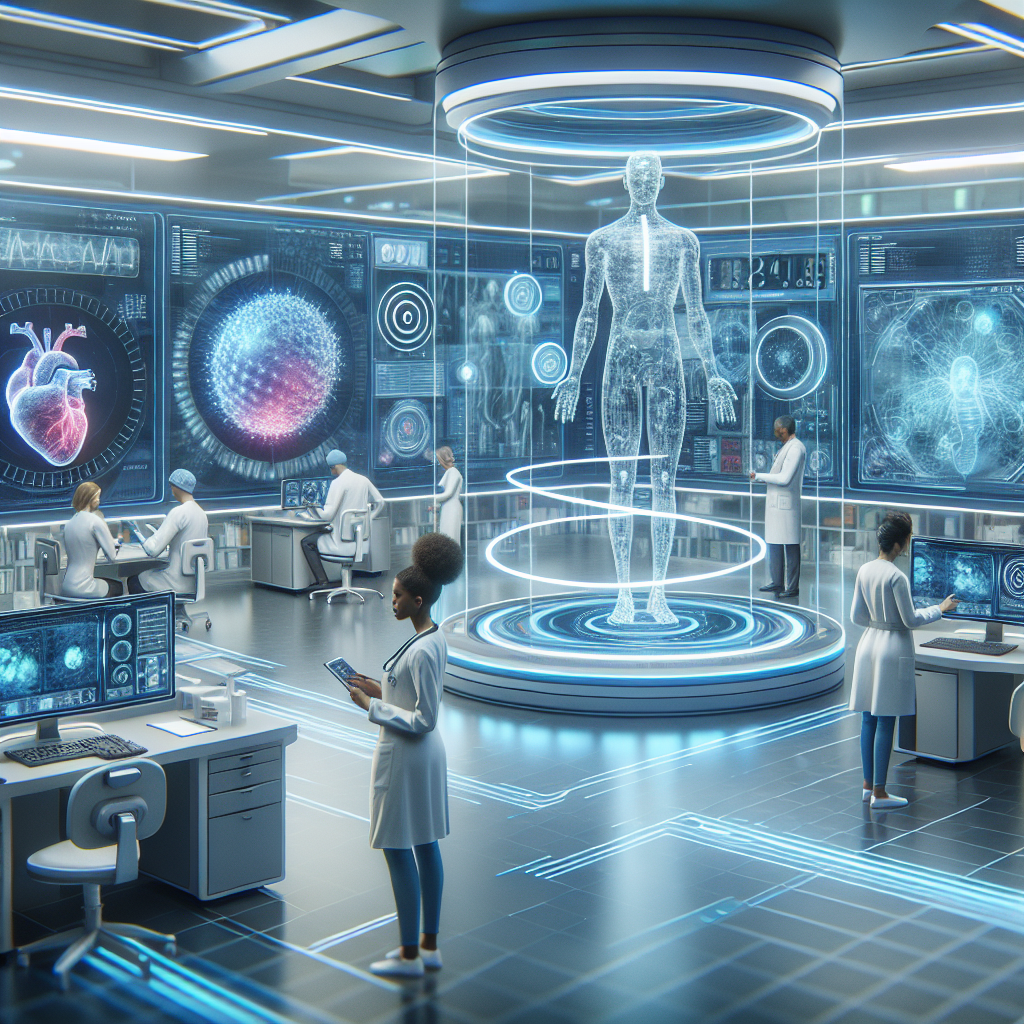Artificial Intelligence (AI) has been making significant strides in various industries, including healthcare. In recent years, AI solutions have been increasingly used in healthcare diagnostics to improve accuracy, speed, and efficiency in diagnosing and treating diseases. This article will explore the role of AI solutions in healthcare diagnostics, their benefits, challenges, and potential future developments.
Role of AI Solutions in Healthcare Diagnostics
AI solutions in healthcare diagnostics refer to the use of advanced algorithms and machine learning techniques to analyze medical data, such as images, lab results, and patient records, to assist healthcare professionals in diagnosing diseases and recommending treatment options. These solutions can help improve the accuracy and speed of diagnoses, leading to better patient outcomes and reduced healthcare costs.
One of the most common applications of AI in healthcare diagnostics is in medical imaging. AI algorithms can analyze medical images, such as X-rays, MRIs, and CT scans, to detect abnormalities and assist radiologists in making diagnoses. For example, AI solutions can help detect early signs of cancer, identify fractures or other injuries, and assess the progression of diseases such as Alzheimer’s and Parkinson’s.
AI solutions can also be used in analyzing lab results and patient records to identify patterns and trends that may indicate the presence of a disease or condition. For instance, AI algorithms can analyze genetic data to predict a patient’s risk of developing certain diseases, such as heart disease or diabetes, based on their genetic profile.
Benefits of AI Solutions in Healthcare Diagnostics
There are several benefits of using AI solutions in healthcare diagnostics, including:
1. Improved accuracy: AI algorithms can analyze vast amounts of data quickly and accurately, leading to more precise diagnoses and treatment recommendations.
2. Faster diagnoses: AI solutions can process medical images and other data in real-time, allowing healthcare professionals to make quicker decisions and start treatment sooner.
3. Cost savings: By improving the accuracy and speed of diagnoses, AI solutions can help reduce unnecessary tests, hospital stays, and treatments, leading to cost savings for patients and healthcare providers.
4. Personalized medicine: AI solutions can analyze patient data to tailor treatment plans to individual patients, taking into account their unique genetic makeup, lifestyle, and medical history.
Challenges of AI Solutions in Healthcare Diagnostics
While AI solutions offer many benefits in healthcare diagnostics, there are also challenges that need to be addressed, including:
1. Data privacy and security: AI solutions rely on large amounts of patient data to train their algorithms, raising concerns about data privacy and security.
2. Regulatory approval: AI solutions in healthcare diagnostics need to meet regulatory standards and be approved by relevant authorities before they can be used in clinical practice.
3. Integration with existing systems: Healthcare providers may face challenges in integrating AI solutions into their existing systems and workflows, requiring training and support for staff.
4. Ethical considerations: AI solutions raise ethical questions about the use of algorithms in making life-changing medical decisions, such as diagnosing diseases and recommending treatments.
Future Developments in AI Solutions for Healthcare Diagnostics
Despite the challenges, the future looks promising for AI solutions in healthcare diagnostics. Advances in AI technology, such as deep learning and natural language processing, are enabling more sophisticated algorithms that can analyze complex medical data and provide more accurate diagnoses. AI solutions are also being developed to assist healthcare professionals in predicting patient outcomes, identifying treatment options, and monitoring disease progression.
In the coming years, we can expect to see AI solutions playing an even greater role in healthcare diagnostics, as they continue to improve in accuracy, speed, and efficiency. Healthcare providers will need to invest in training their staff to use AI solutions effectively and ensure that they meet regulatory standards for patient safety and data privacy.
FAQs
Q: How are AI solutions trained to analyze medical data?
A: AI solutions are trained using large datasets of medical images, lab results, and patient records. These datasets are used to teach the algorithms to recognize patterns and abnormalities that indicate the presence of a disease or condition.
Q: Are AI solutions replacing human healthcare professionals in diagnosing diseases?
A: AI solutions are not meant to replace healthcare professionals but to assist them in making more accurate and efficient diagnoses. Healthcare professionals will still play a critical role in interpreting the results of AI algorithms and making treatment decisions based on their clinical expertise.
Q: What are the ethical considerations of using AI solutions in healthcare diagnostics?
A: Ethical considerations of using AI solutions in healthcare diagnostics include ensuring patient privacy and data security, transparency in how algorithms make decisions, and accountability for the outcomes of AI-assisted diagnoses. Healthcare providers need to be mindful of these ethical considerations when implementing AI solutions in clinical practice.
In conclusion, AI solutions have the potential to revolutionize healthcare diagnostics by improving accuracy, speed, and efficiency in diagnosing diseases. While there are challenges to overcome, such as data privacy, regulatory approval, and ethical considerations, the benefits of using AI solutions in healthcare diagnostics are clear. As technology continues to advance, we can expect to see AI solutions playing an even greater role in improving patient outcomes and reducing healthcare costs. Healthcare providers will need to embrace AI solutions and invest in training their staff to use them effectively to realize the full potential of this exciting technology.

